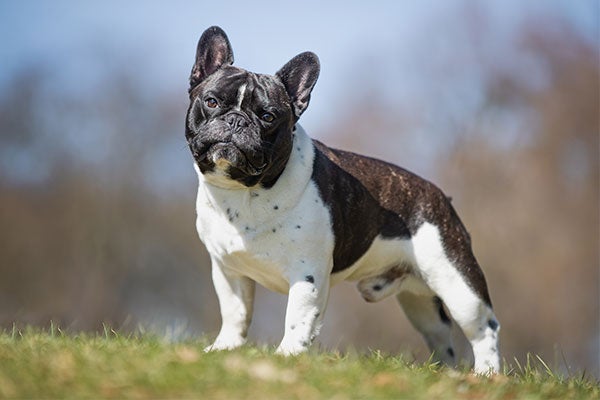Uncategorized
The Fascinating World of French Bulldogs
In the world of canine companionship, few breeds are as beloved and intriguing as the French Bulldog. With their distinctive appearance, endearing personality, and rich history, French Bulldogs have captured the hearts of dog lovers around the globe. In this article, we will dive into the world of French Bulldogs, exploring their origins, unique characteristics, care requirements, and why they have become such popular pets.

Origins and History
The French Bulldog, often affectionately referred to as the “Frenchie,” has a rich history that traces back to the early 19th century. Despite their name, these delightful dogs actually originated in England, where they were initially bred as smaller versions of the Bulldog. These miniature Bulldogs were favored by lace workers in Nottingham, who later brought them to France during the Industrial Revolution when lace production moved to the French countryside.
In France, these dogs quickly gained popularity among various social classes, particularly in Paris. They became beloved companions to artists, shopkeepers, and nobility alike. It was in France that the breed’s distinctive bat-like ears and charming disposition began to develop.
Characteristics
One of the most distinguishing features of French Bulldogs is their unique appearance. They are small, compact dogs with a muscular build, a short, smooth coat, and a broad, square head. Their most iconic feature is their large, rounded ears, which give them a whimsical and unmistakable appearance. French Bulldogs typically stand about 11 to 12 inches tall at the shoulder and weigh between 16 to 28 pounds.
Their coat color can vary, with common shades including brindle, fawn, cream, and pied (a combination of white with any of the other colors). Their expressive eyes are typically dark and round, conveying a sense of curiosity and affection.
Perhaps the most endearing quality of French Bulldogs is their temperament. They are known for their friendly, affectionate, and adaptable nature. These dogs are excellent companions for families, singles, and seniors alike. They are social and enjoy being close to their human family members. Despite their small size, French Bulldogs are known for their sturdy and resilient disposition, making them well-suited for city living and apartment dwellers.
One of the reasons French Bulldogs are so popular is their low exercise requirements. While they enjoy short walks and playtime, they do not require extensive daily exercise like some other breeds. This makes them a great choice for individuals with busy lifestyles or limited outdoor space. However, it’s important to note that they can be sensitive to extreme temperatures, so it’s crucial to protect them from extreme heat or cold.
Care and Health
While French Bulldogs are relatively low-maintenance in terms of exercise, they do have specific care requirements. One of the most important aspects of their care is their respiratory health. Due to their unique facial structure, with a flat face and short nose, French Bulldogs are prone to brachycephalic syndrome, a condition that can lead to breathing difficulties. It’s essential to keep them in a well-ventilated environment and avoid excessive exercise in hot weather to prevent overheating.
Their skin folds and ears should also be regularly cleaned to prevent irritation and infection. Additionally, their nails should be trimmed regularly, as their small size can lead to overgrown nails, which can be uncomfortable for them.
French Bulldogs are known to be a generally healthy breed, but like all dogs, they can be prone to certain genetic health issues. These may include hip dysplasia, spinal issues, eye conditions, and allergies. Responsible breeding and regular veterinary check-ups can help mitigate these risks.
The French Bulldog as a Companion
French Bulldogs are renowned for their loyalty and affection towards their owners. They form strong bonds with their human families and often become attached to a particular person. Their playful and loving nature makes them excellent companions for individuals and families alike.
These dogs are also known for their sense of humor. They have a knack for making their owners laugh with their quirky antics and expressive faces. They thrive on attention and are often eager to entertain their loved ones.
Despite their small size, French Bulldogs can be quite protective. They will alert their owners to any potential threats with their distinctive bark, making them excellent watchdogs. However, their friendly disposition typically means they are more likely to make new friends than deter intruders.
Popularity and Famous French Bulldogs
Over the past few decades, French Bulldogs have experienced a surge in popularity. Their charming personalities, unique appearance, and adaptability have made them sought-after pets worldwide. They have even gained popularity among celebrities, with many A-listers adopting French Bulldogs as their furry companions.
Some famous French Bulldogs include Manny the Frenchie, who boasts millions of followers on social media, and Gary Fisher, the beloved pet of the late actress Carrie Fisher. These dogs have become Internet sensations, capturing the hearts of people around the world.
Conclusion
The French Bulldog, with its rich history, distinctive appearance, and lovable personality, is undoubtedly a remarkable breed. Their journey from the lace factories of England to the homes of artists and nobility in France has left a lasting legacy. Today, they continue to bring joy and companionship to countless families worldwide.
If you’re considering adding a furry friend to your life, the French Bulldog is a breed worth considering. Their adaptability, loyalty, and sense of humor make them fantastic companions for individuals and families alike. However, it’s essential to be mindful of their specific care requirements, especially regarding their respiratory health. With proper care and attention, a French Bulldog can become not only a cherished pet but also a beloved member of your family.

